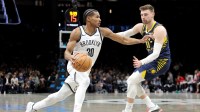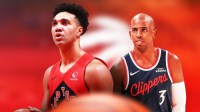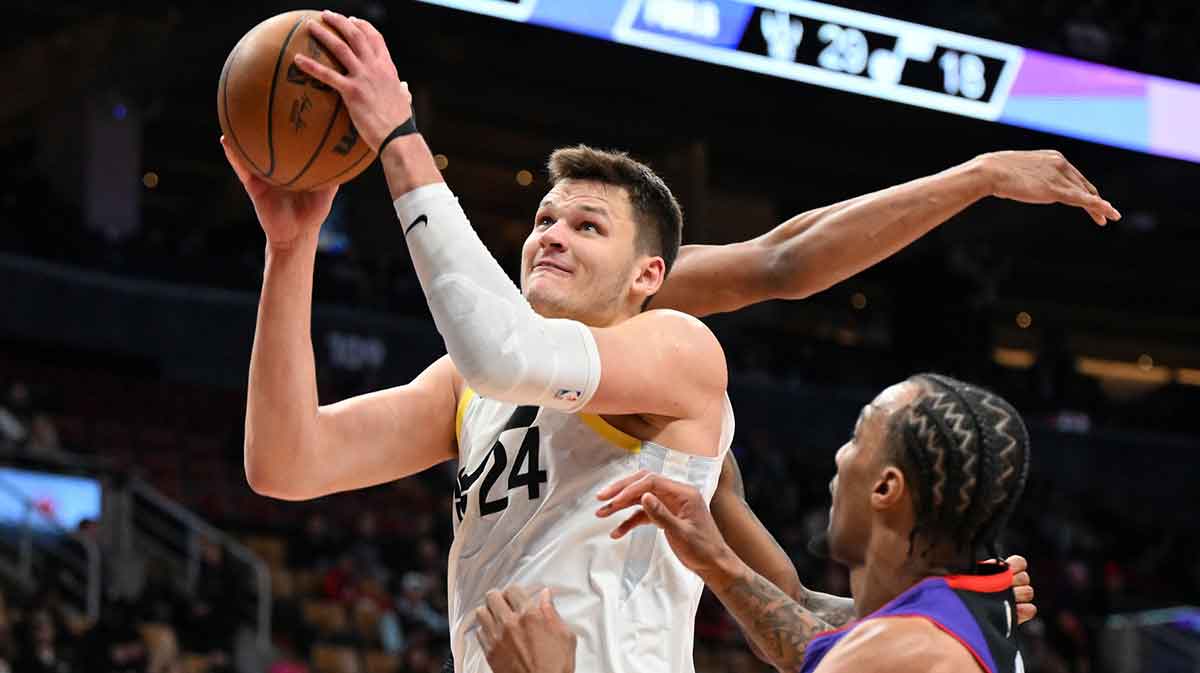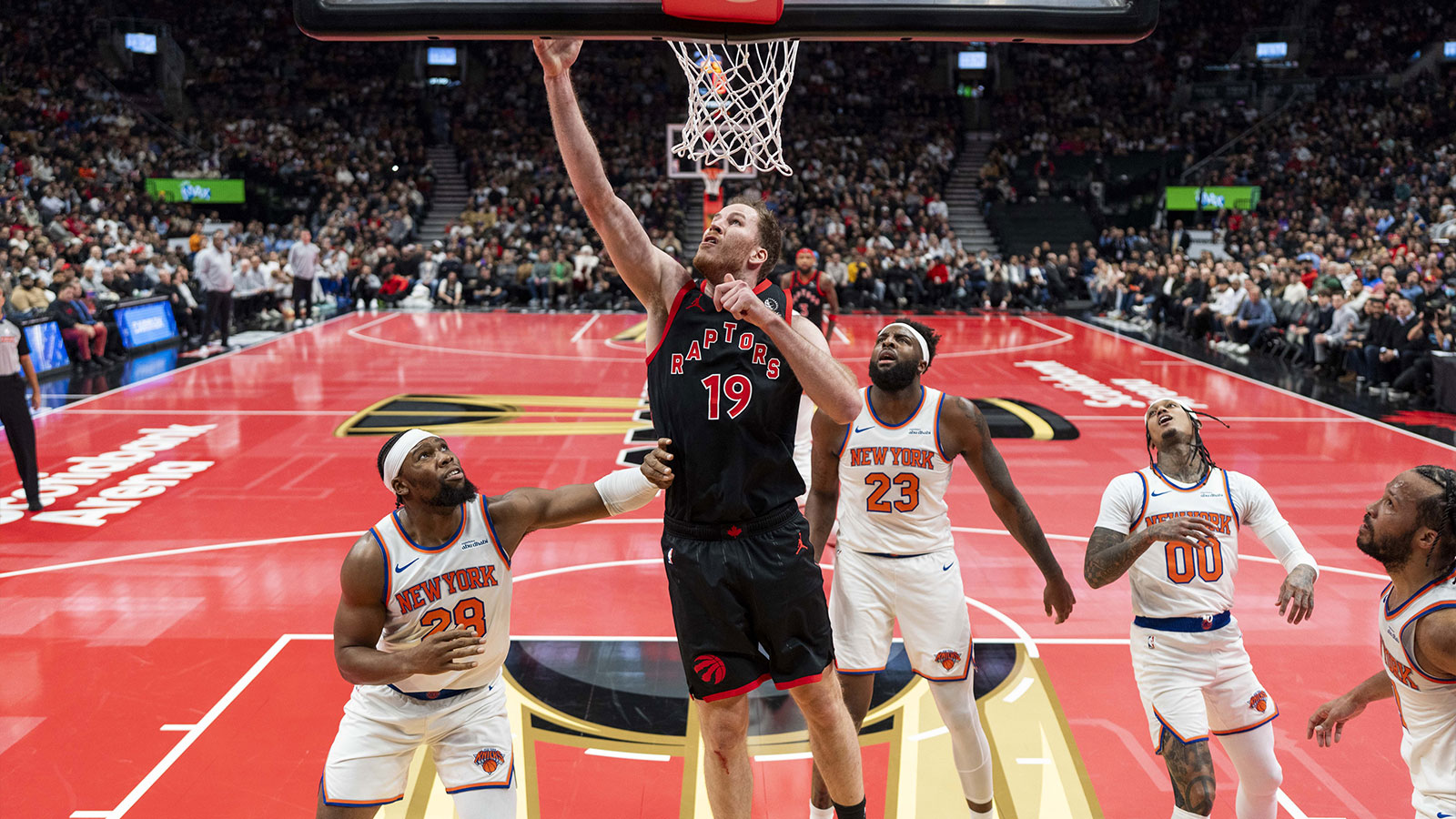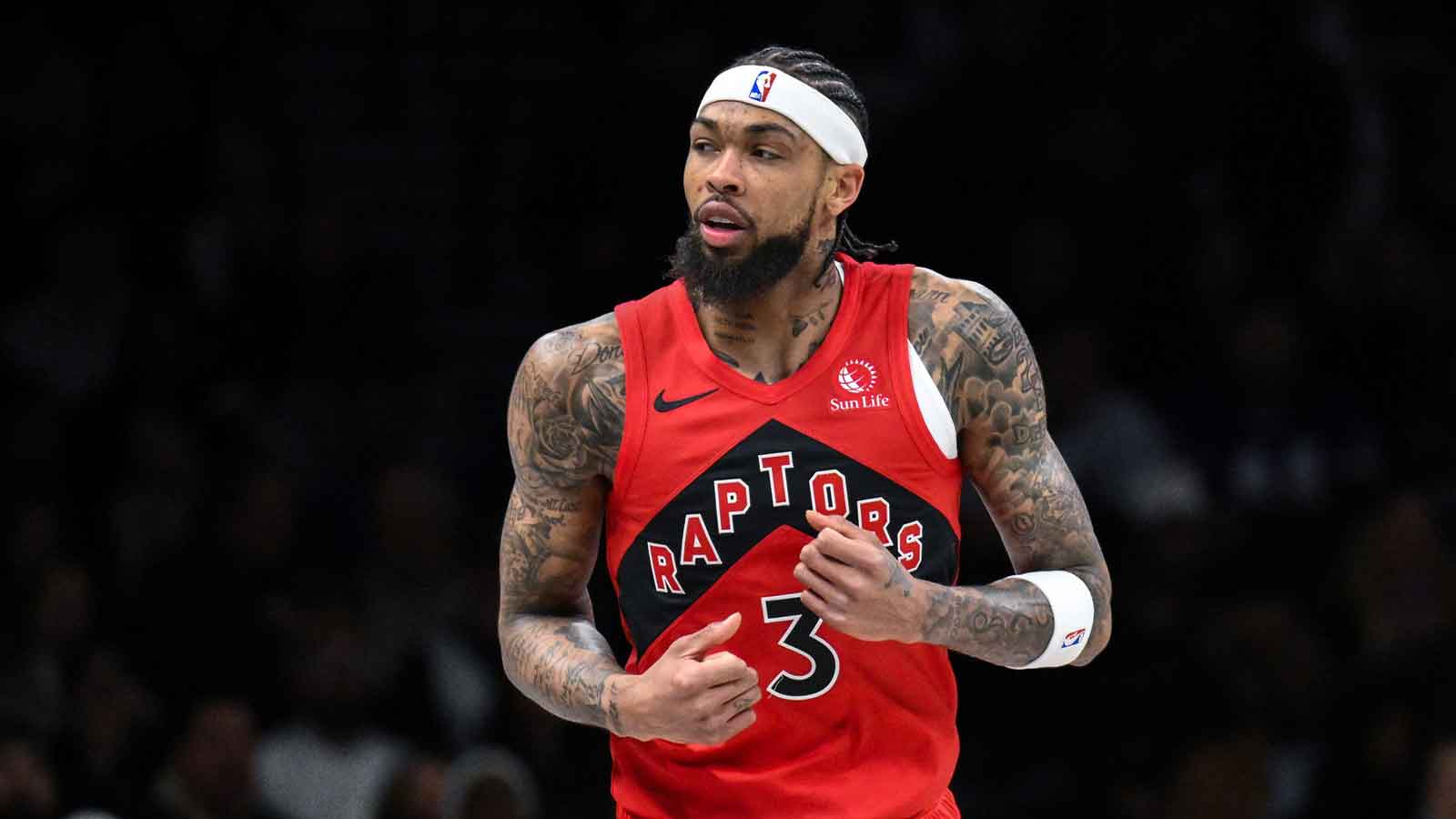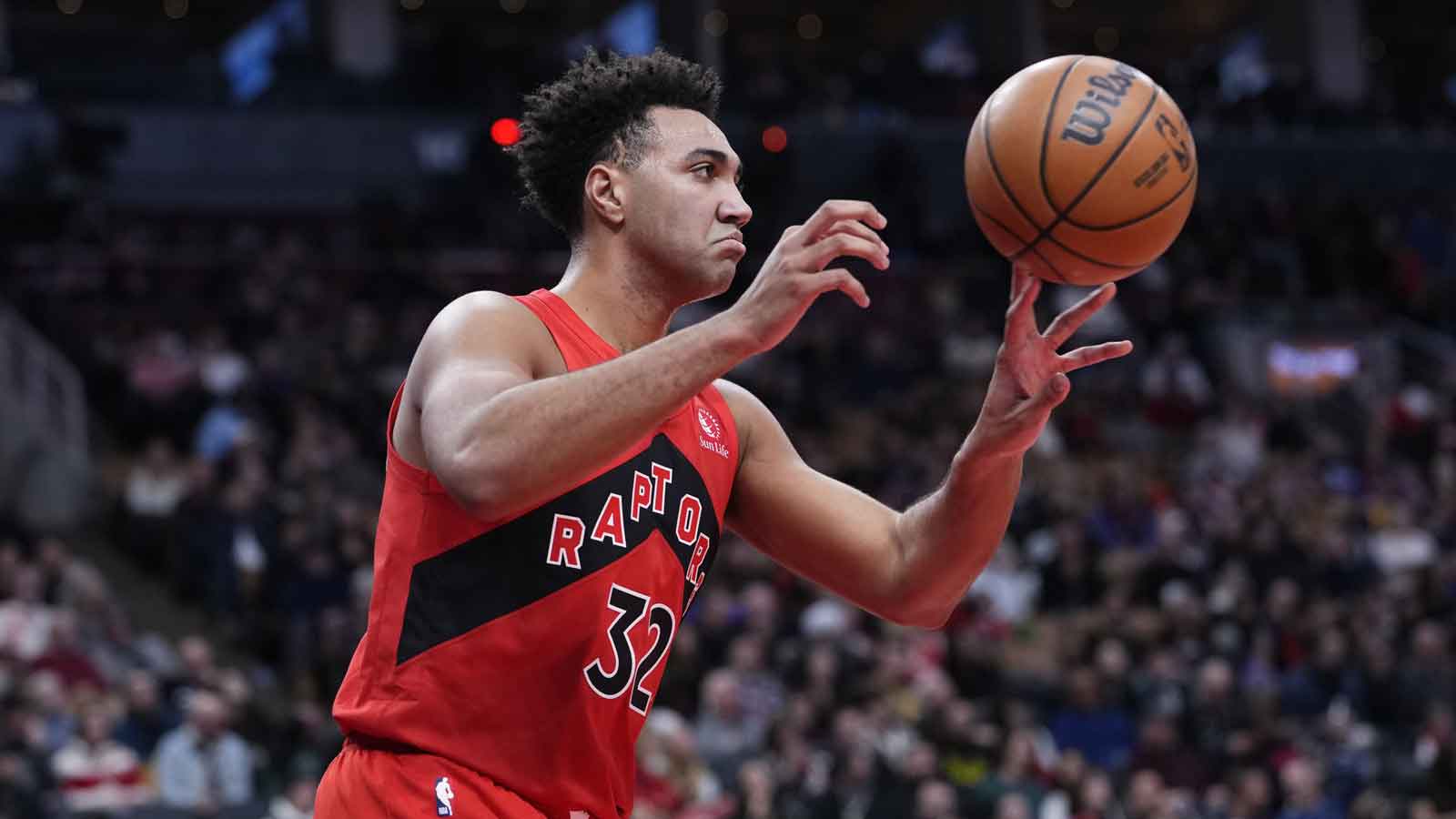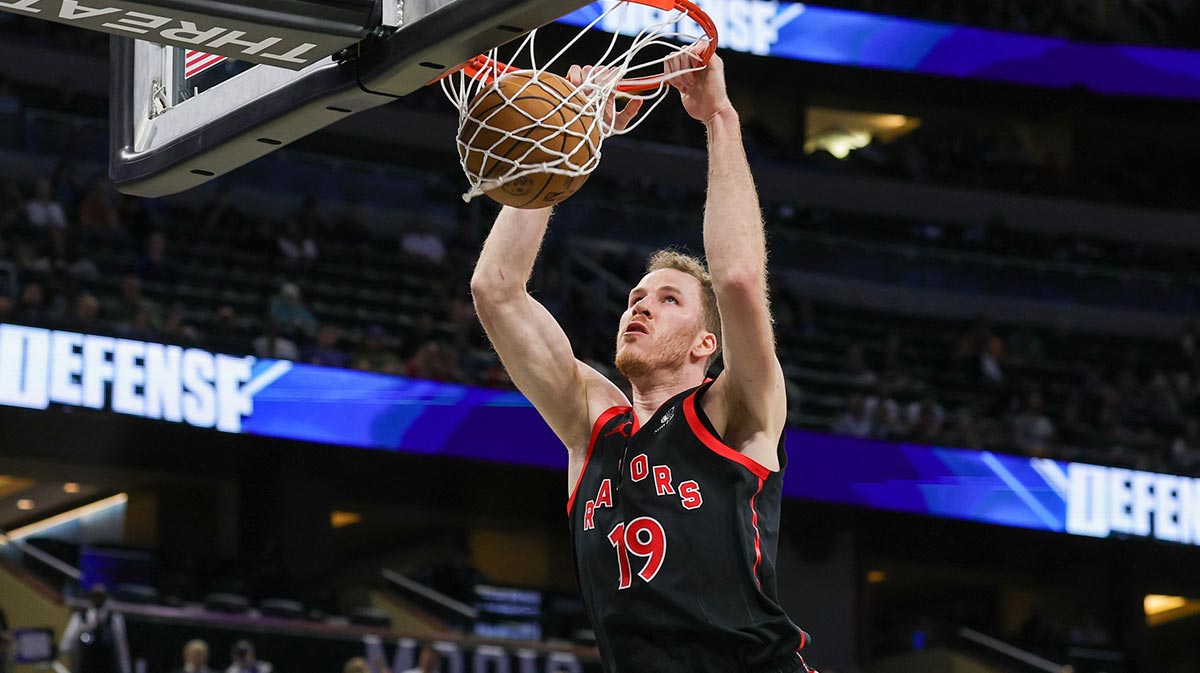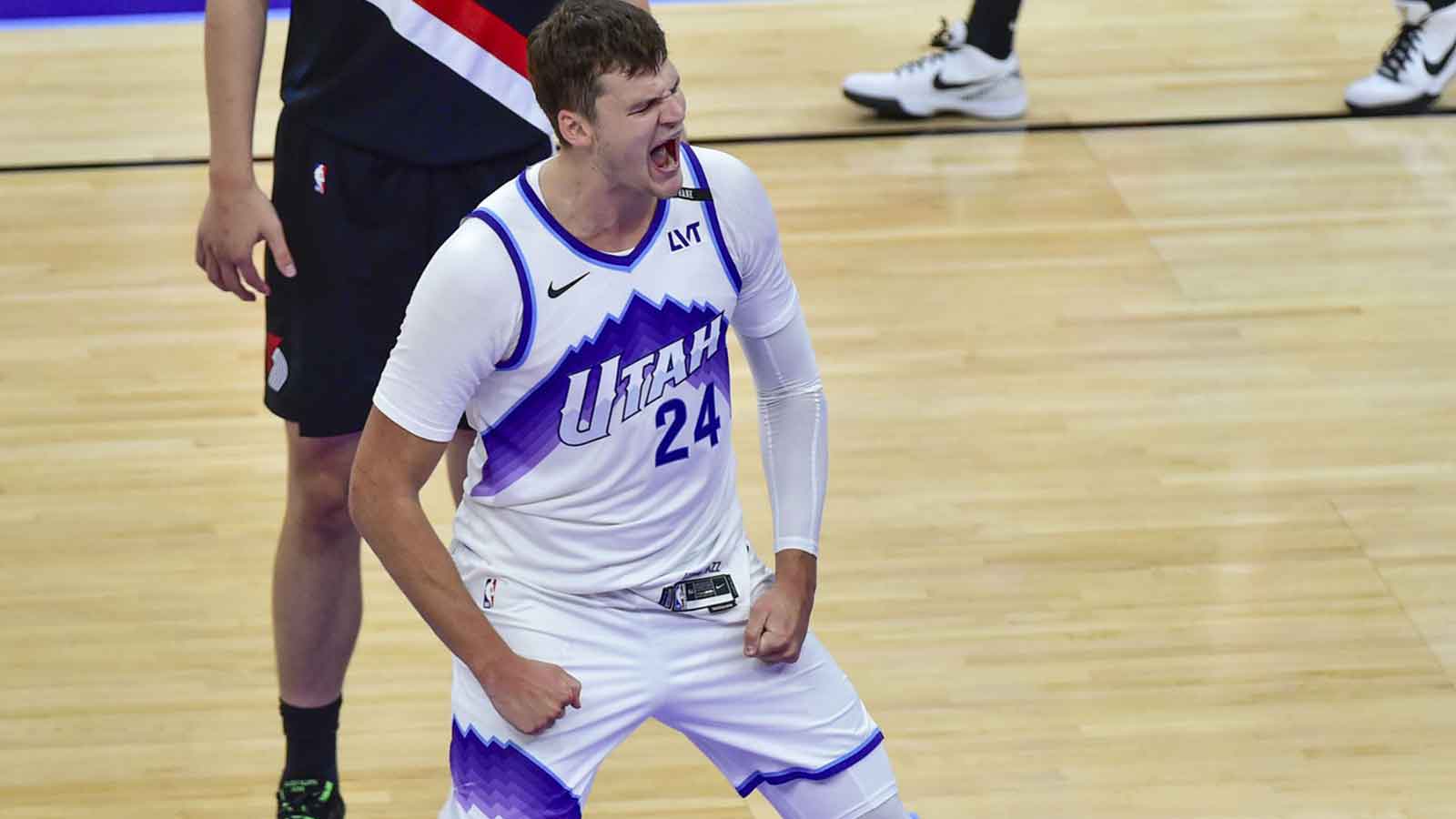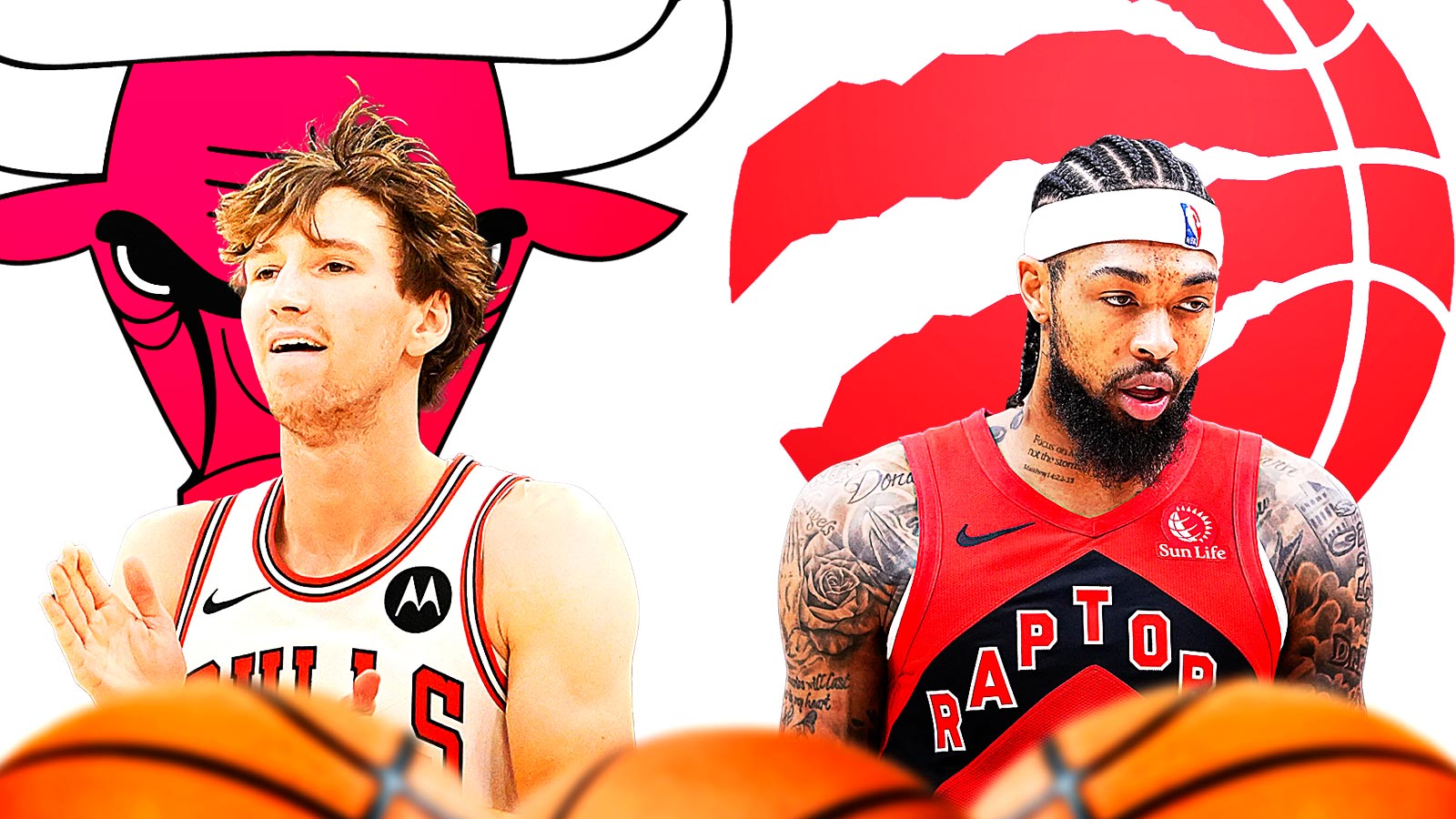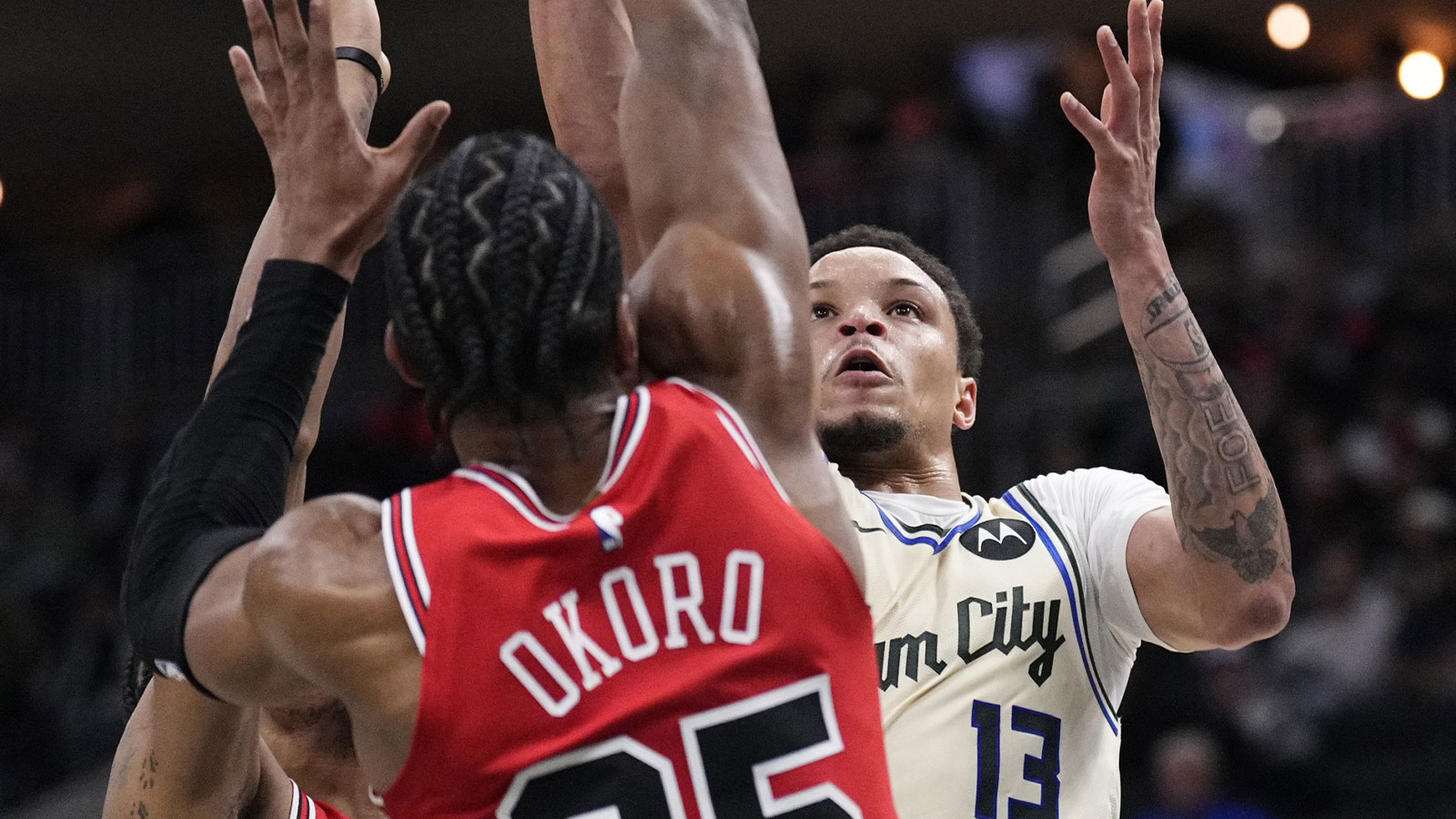If you are a Toronto Raptors fan, their game against the Utah Jazz did not have much for you, unfortunately.
On the first night of yet another back-to-back (why does it feel like there’s been 15 of these already?), the Raptors fell apart early against the Utah Jazz (by all accounts a very good basketball team) and were never truly able to recover.
“You just gotta keep taking it a game at a time,” Scottie Barnes told reporters post-game. “Keep doing anything you can to try and win.”
The losing streak is now three, for those of you keeping track at home, putting the Raptors at two games below .500 and moving their road record to 5-3.
As it was an admittedly unremarkable night, there are only two key takeaways from this one. Here they are:

Raptors' defensive detonation
Much has been made about the Raptors’ hyper-aggressive defensive style this season, and that same conversation will surly only continue on whether they turn things around or proceed to lurch further into the slow spiral they’ve begun.
Early on against the Jazz, the issues were evident once more: Toronto (notably without OG Anunoby and, therefore, a considerable cog in their typically switchy system) tried trapping most everything—not just big men like Rudy Gobert around the rim, but guards and wings out high on the perimeter. Utah had little trouble passing out of those coverages and, once that happened, the Raptors were in rotation, flailing as they tried unsuccessfully to prevent Jazz buckets.
“They’re a good team, they started hitting shots,” Malachi Flynn said. “They kind of got on a run and started hitting a couple in a row and it got out of hand a little bit.”
Again, the idea behind the defence was rational enough—the Raptors were out there with even fewer options than usual for dealing with opposing bigs, and so they attempted to leverage their length and collective positional size to force turnovers early and often in hopes that it would lead to transition opportunities.
And it’s not like that strategy was a complete bust. Toronto did force 25 Jazz turnovers, which in turn led directly to 37 points.
But it still wasn’t enough because the Raptors’ defence, most of the time, just wasn’t sufficiently cohesive. The communication evidently remains a work in progress, and that’s a big deal when all five guys need to be on a string for such an aggressive scheme. There simply can’t be repeated leaks possession after possession, as it leads to a sinking ship.
“They got a lot of buckets at the rim tonight,” head coach Nick Nurse said, “obviously that was tough to handle, and they also shot it pretty good from three. This a good shooting team, a really tough team to defend. But we just didn’t cover up good enough at the rim or at least wrap them up and make them shoot free throws or things like that. But I think guys were trying to execute the stuff and we just missed a few coverages and they made us pay for them.”
Over their first 10 games, the Raptors held opponents to below the 50 percent shooting mark. Since that time, four of their last six opponents have shot over 50 percent.
Toronto does like to think of itself as a defence-first squad, and it does have a bunch of magnificent defensive talent. But at the moment, for various reasons, things aren’t meshing.
Birch, Roll Threat
It’s always good practice to have at least one positive thing to take away from any game. There are shafts of light even on the darkest of nights, and this one was no exception.
While his foul trouble and Nurse searching for answers on the defensive end both factored into Khem Birch playing fewer second-half minutes, he showed some really impressive things on the short roll during the first two frames.
As a passer in that scenario, Birch has been good all season long and he continued to be so against the Jazz, catching the ball on the roll and, if he saw an opening to the wing or corner, spraying the ball outward immediately and on point, putting the defence into rotation and helping create quality looks.
Most impressively, when Utah began to play him for the pass, he managed to make himself a legitimate scoring threat, dropping 14 points in 24 minutes. Though he’s not large enough to act as a prototypical bruiser (even with a highly physical game), he took advantage of the defence waiting for him at the rim and took a plethora of floaters that he knocked down with ease.
Birch isn’t really a starter-level centre, but he is a quality big man nonetheless and continues to give the Raptors solid minutes when he’s on the floor, which is really all anyone can ask for.



